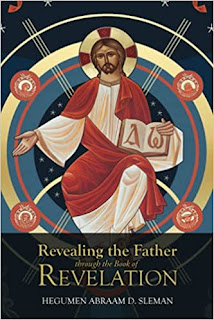Armageddon War (Rev. 16:14-16)
Some preachers say that the Russia-Ukraine
war is the same as “the Battle of Armageddon” in the Book of Revelation (Rev.
16:14-16).
Answer
According to the
Historical Approach of interpreting the book of Revelation, the Commentators
try to find fulfillment of the Revelation’s visions in historical events. In
the past, they referred to many wars as the Battle of Armageddon. They miss the
spiritual message and the symbolic language of the Book of Revelation by such
interpretation.
The kings of the
world (Rev. 16:14) symbolize the powers of darkness opposing God through the
evil political and religious rulers. And with the deceived multitudes, these
kings go to war against Almighty God.
Waging
War
The “battle” or
“war” against God and His people is not physical or political but spiritual. It
is the ongoing battle Satan has been waging since he led Adam and Eve astray in
Paradise. Satan will continue to wage wars until God casts him into the lake of
fire (Rev. 20:10). However, the Greek text features the definite article in the
expression “the battle” or “the war” at three places that feature the battle of
“the great day of the Lord,” the day of the cross (Rev. 16:14; 19:19; 20:8).
Thus, it refers to the conflict on the cross.
The
Day of the Lord
In the Old and New Testaments, including the epistles of
Paul and Peter, the term “the day of the Lord” means, in its unique sense, the
last eschatological day. On the cross, we passed the judgment of this day in
the body of the Lord Jesus Christ. Thus, the Apostles Peter, St. John, and
their companions could understand that Psalm 2 is a prophecy of God’s great day
in Christ on the cross (Acts 4:24-28).
Through the sprinkling of
Christ’s blood on our consciences and in our hearts, Christ’s victory - on the “great
day of the Lord” on the cross - becomes a living experience in our lives. The
apostles could understand that God has made the victory of the Lord Jesus
Christ on the cross to be their victory over the kingdom of evil. Christ’s
victory made them boldly preach the good news of the Lord Jesus Christ (Acts
4:29-30).
The Lord Jesus Christ had taught His disciples that they
should be like the owner of a house who stays awake to prevent a thief from
breaking in at night (Matt. 24:42–43; Luke 12:39–40). And in the letter to the angel of the church in Sardis, the Lord Jesus Christ him that He will come
like a thief (Rev. 3:3). Both Paul and Peter describe the coming of the Lord
Jesus Christ as a thief at night (1 Thess. 5:2; 2 Pet. 3:10). Thus Christ’s and
the apostles’ teachings alert the Christians of Christ’s sudden and unexpected
return.
The unexpected time of Christ’s second coming requires
vigilance and is associated with a beatitude for those who stay awake. Thus, in
the parable of the sudden arrival of the thief, the Lord Jesus is blessed, the
faithful and watchful servant (Luke 12:37,39).
“Blessed is he who watches” is an encouragement to stay spiritually
awake. Moreover, it is an admonishment to hold on to the blessings of the
Father in Christ’s death and resurrection. The Lord Jesus Christ grants this
blessing as the third in a series of seven beatitudes (Rev. 1:3; 14:13; 16:15; 19:9; 20:6; 22:7,14).
Keeping
the Clothes
Armageddon
“Armageddon” is the Hebrew
equivalent of “Mount of Megiddo.” Scholars disagree about the exact
location of this place. However, the most likely possibility is the valley
between Mount Carmel and the city of Jezreel. This valley, known as the Valley
of Jezreel and sometimes referred to as the Plain of Esdraelon, was the crossroads
of two ancient trade routes and was a strategic military site. Armageddon is
the Greek word for this area, which was the scene of many old battles.
Some interpreters see the word Armageddon is based on the
Hebrew word “בְּהַר־מוֹעֵד,” translated in English as “the mountain of assembly,” which
appears in Isa. 14:13. This mountain is symbolic of “Mount Zion” and related to
“the City of Jerusalem.” It is considered where Christ would come from to
defeat his enemies.
Armageddon depicts
“the great battle of the Lord” on the cross and symbolizes God’s deliverance of
His people from harm in the war against the kingdom of evil. At Armageddon, God
poured out “the cup of the wine of the fierceness of His [God’s] wrath” (Rev.
16:19).
On the cross, the
kingdom of evil has been defeated. God disarmed principalities and powers. He
made a public spectacle of them, triumphing over them in the Lord Jesus Christ
(Col. 2:15).
Through the cross
and the resurrection of the Lord Jesus Christ, God the Father had demonstrated
His mightiest power. He raised the Lord Jesus Christ, exalted Him, and gave Him
the name above every name (Phil. 2:9-10).
Pouring the Sixth Cup
presents Christ’s victory on the cross as our victory. The victorious overcome
Satan and his kingdom through the blood of the Lamb (Rev. 12:11). Thus,
Armageddon is no longer just a geographical location nor a place of historical
battles. Instead, it is in the believer’s heart where the spiritual struggle
takes place against the forces of darkness, and we obtain victory in the blood
of the Lamb.
To order the book, “Revealing the Father through the Book of Revelation”:




Comments
Post a Comment